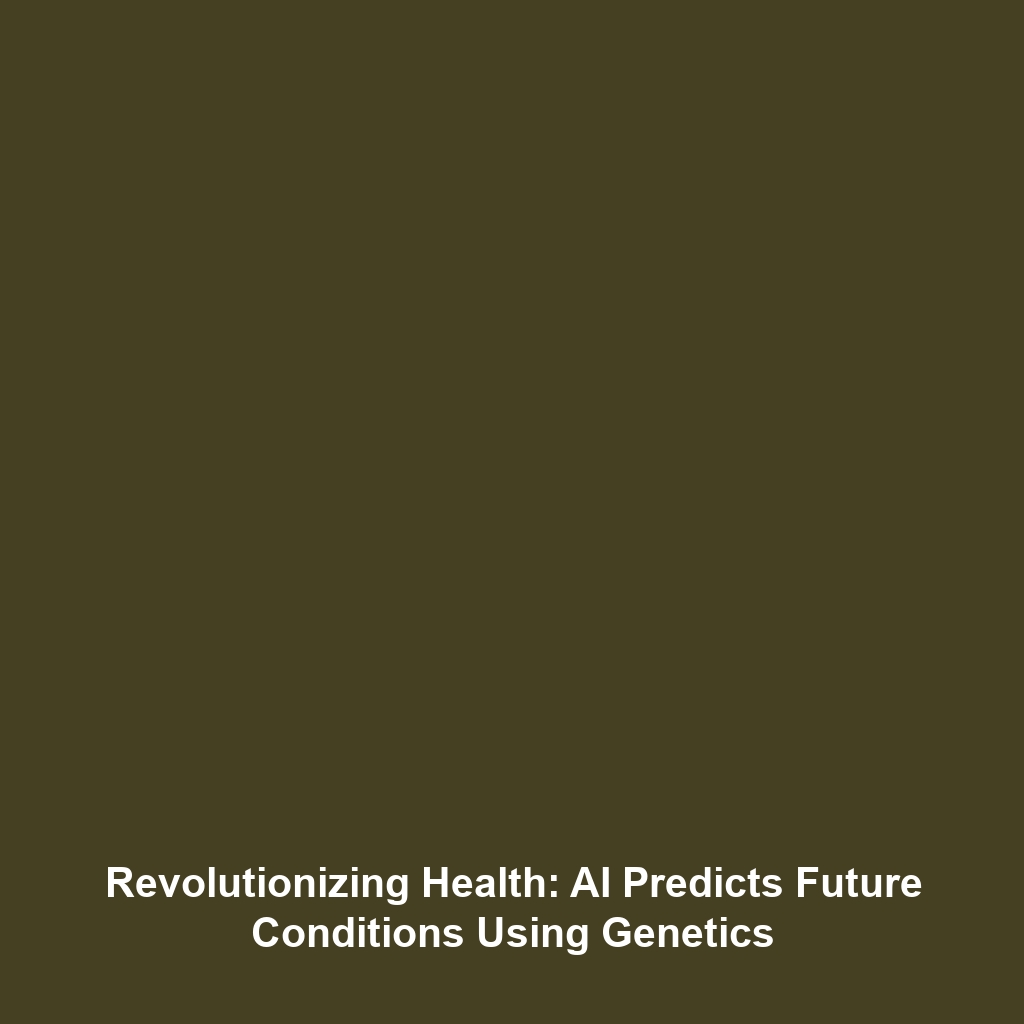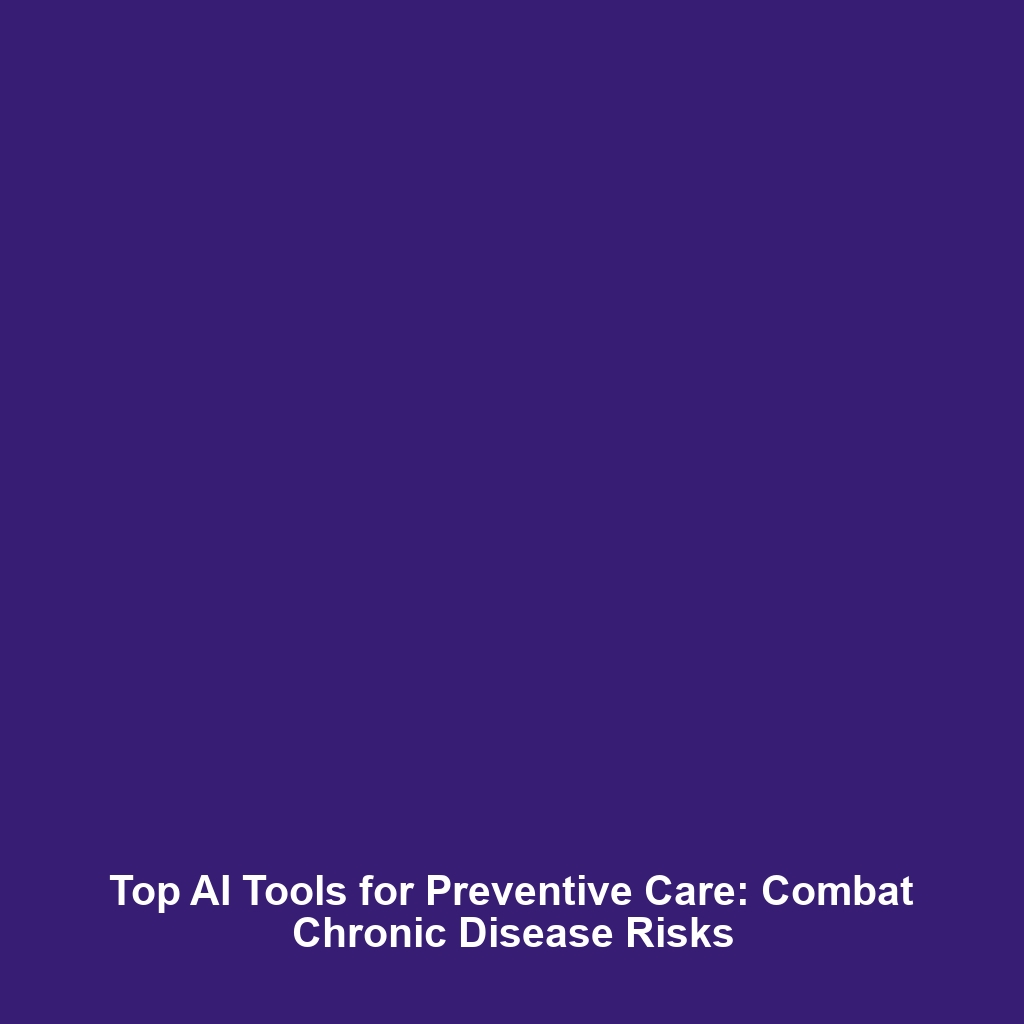How AI Can Predict Future Health Conditions by Analyzing Genetic and Lifestyle Data
Introduction
In recent years, the intersection of artificial intelligence (AI) and healthcare has transformed the way we approach health predictions and personalized medicine. AI can predict future health conditions by effectively analyzing genetic and lifestyle data, enabling early intervention and tailored health strategies. This groundbreaking capability not only enhances patient care but also holds the potential to revolutionize public health at large. With an emphasis on AI in Healthcare, this article delves into the methodology, applications, challenges, and future directions of AI-driven health predictions.
Key Concepts
The use of AI for predicting health conditions integrates several critical concepts and principles:
Genetic Data Analysis
By analyzing genetic information, AI algorithms can identify predispositions to certain health conditions, ranging from hereditary diseases to complex traits impacted by multiple genes.
Lifestyle Data Analysis
Lifestyle factors such as diet, exercise, and environmental influences play a significant role in health. AI systems assess these inputs alongside genetic data to create comprehensive health profiles.
Machine Learning in Healthcare
Machine learning models can detect patterns and correlations within large datasets, making predictions about potential future health issues based on historical trends and individual data.
Applications and Real-World Uses
The practical applications of AI in predicting future health conditions are vast and growing. Key uses include:
- Preventive Healthcare: AI algorithms can recommend lifestyle changes to mitigate health risks based on genetic predispositions.
- Personalized Medicine: Tailored treatment plans can be designed by integrating genetic information with lifestyle factors.
- Population Health Management: AI tools analyze population data to understand health trends and improve preventive screening programs.
This illustrates how AI can predict future health conditions and enhance the efficacy of AI in Healthcare.
Current Challenges
Despite the enormous potential of AI in health predictions, several challenges remain:
- Data Privacy: The use of personal genetic and lifestyle data poses privacy concerns.
- Data Quality: Inaccurate or incomplete data can lead to unreliable predictions.
- Regulatory Frameworks: There is still a need for clear regulations governing the use of AI in healthcare.
- Ethical Implications: The ethical considerations of genetic data usage can affect public trust and acceptance.
Future Research and Innovations
The future of predicting health conditions using AI appears promising with several upcoming innovations:
- Next-Generation Sequencing: Advances in genomics will improve the accuracy of genetic assessments.
- Integration with Wearable Technology: Data from wearable health devices can provide real-time insights into lifestyle factors.
- Collaborative AI Models: Combining AI techniques with traditional medical research will enhance predictive capabilities.
Conclusion
In summary, AI can predict future health conditions by intricately analyzing genetic and lifestyle data, underscoring its critical role within the expanding realm of AI in Healthcare. The future of healthcare stands at the brink of revolutionary changes driven by these technologies, making ongoing research and ethical considerations vital. For further exploration, visit our articles on Genetic Research Advances and Emerging Healthcare Technologies.

